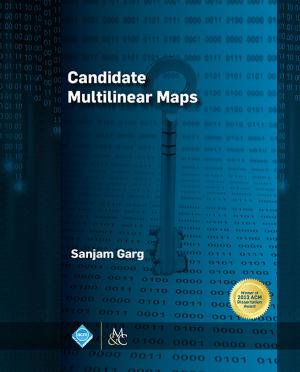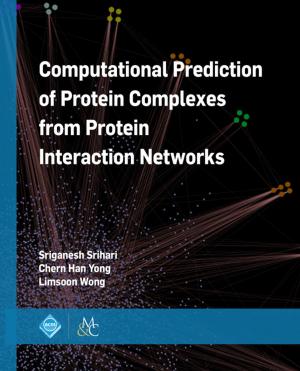An Architecture for Fast and General Data Processing on Large Clusters
Nonfiction, Computers, Advanced Computing, Parallel Processing, Engineering, Computer Architecture, General Computing| Author: | Matei Zaharia | ISBN: | 9781970001587 |
| Publisher: | Association for Computing Machinery and Morgan & Claypool Publishers | Publication: | May 1, 2016 |
| Imprint: | ACM Books | Language: | English |
| Author: | Matei Zaharia |
| ISBN: | 9781970001587 |
| Publisher: | Association for Computing Machinery and Morgan & Claypool Publishers |
| Publication: | May 1, 2016 |
| Imprint: | ACM Books |
| Language: | English |
The past few years have seen a major change in computing systems, as growing data volumes and stalling processor speeds require more and more applications to scale out to clusters. Today, a myriad data sources, from the Internet to business operations to scientific instruments, produce large and valuable data streams. However, the processing capabilities of single machines have not kept up with the size of data. As a result, organizations increasingly need to scale out their computations over clusters.
At the same time, the speed and sophistication required of data processing have grown. In addition to simple queries, complex algorithms like machine learning and graph analysis are becoming common. And in addition to batch processing, streaming analysis of real-time data is required to let organizations take timely action. Future computing platforms will need to not only scale out traditional workloads, but support these new applications too.
This book, a revised version of the 2014 ACM Dissertation Award winning dissertation, proposes an architecture for cluster computing systems that can tackle emerging data processing workloads at scale. Whereas early cluster computing systems, like MapReduce, handled batch processing, our architecture also enables streaming and interactive queries, while keeping MapReduce's scalability and fault tolerance. And whereas most deployed systems only support simple one-pass computations (e.g., SQL queries), ours also extends to the multi-pass algorithms required for complex analytics like machine learning. Finally, unlike the specialized systems proposed for some of these workloads, our architecture allows these computations to be combined, enabling rich new applications that intermix, for example, streaming and batch processing.
We achieve these results through a simple extension to MapReduce that adds primitives for data sharing, called Resilient Distributed Datasets (RDDs). We show that this is enough to capture a wide range of workloads. We implement RDDs in the open source Spark system, which we evaluate using synthetic and real workloads. Spark matches or exceeds the performance of specialized systems in many domains, while offering stronger fault tolerance properties and allowing these workloads to be combined. Finally, we examine the generality of RDDs from both a theoretical modeling perspective and a systems perspective.
This version of the dissertation makes corrections throughout the text and adds a new section on the evolution of Apache Spark in industry since 2014. In addition, editing, formatting, and links for the references have been added.
The past few years have seen a major change in computing systems, as growing data volumes and stalling processor speeds require more and more applications to scale out to clusters. Today, a myriad data sources, from the Internet to business operations to scientific instruments, produce large and valuable data streams. However, the processing capabilities of single machines have not kept up with the size of data. As a result, organizations increasingly need to scale out their computations over clusters.
At the same time, the speed and sophistication required of data processing have grown. In addition to simple queries, complex algorithms like machine learning and graph analysis are becoming common. And in addition to batch processing, streaming analysis of real-time data is required to let organizations take timely action. Future computing platforms will need to not only scale out traditional workloads, but support these new applications too.
This book, a revised version of the 2014 ACM Dissertation Award winning dissertation, proposes an architecture for cluster computing systems that can tackle emerging data processing workloads at scale. Whereas early cluster computing systems, like MapReduce, handled batch processing, our architecture also enables streaming and interactive queries, while keeping MapReduce's scalability and fault tolerance. And whereas most deployed systems only support simple one-pass computations (e.g., SQL queries), ours also extends to the multi-pass algorithms required for complex analytics like machine learning. Finally, unlike the specialized systems proposed for some of these workloads, our architecture allows these computations to be combined, enabling rich new applications that intermix, for example, streaming and batch processing.
We achieve these results through a simple extension to MapReduce that adds primitives for data sharing, called Resilient Distributed Datasets (RDDs). We show that this is enough to capture a wide range of workloads. We implement RDDs in the open source Spark system, which we evaluate using synthetic and real workloads. Spark matches or exceeds the performance of specialized systems in many domains, while offering stronger fault tolerance properties and allowing these workloads to be combined. Finally, we examine the generality of RDDs from both a theoretical modeling perspective and a systems perspective.
This version of the dissertation makes corrections throughout the text and adds a new section on the evolution of Apache Spark in industry since 2014. In addition, editing, formatting, and links for the references have been added.















